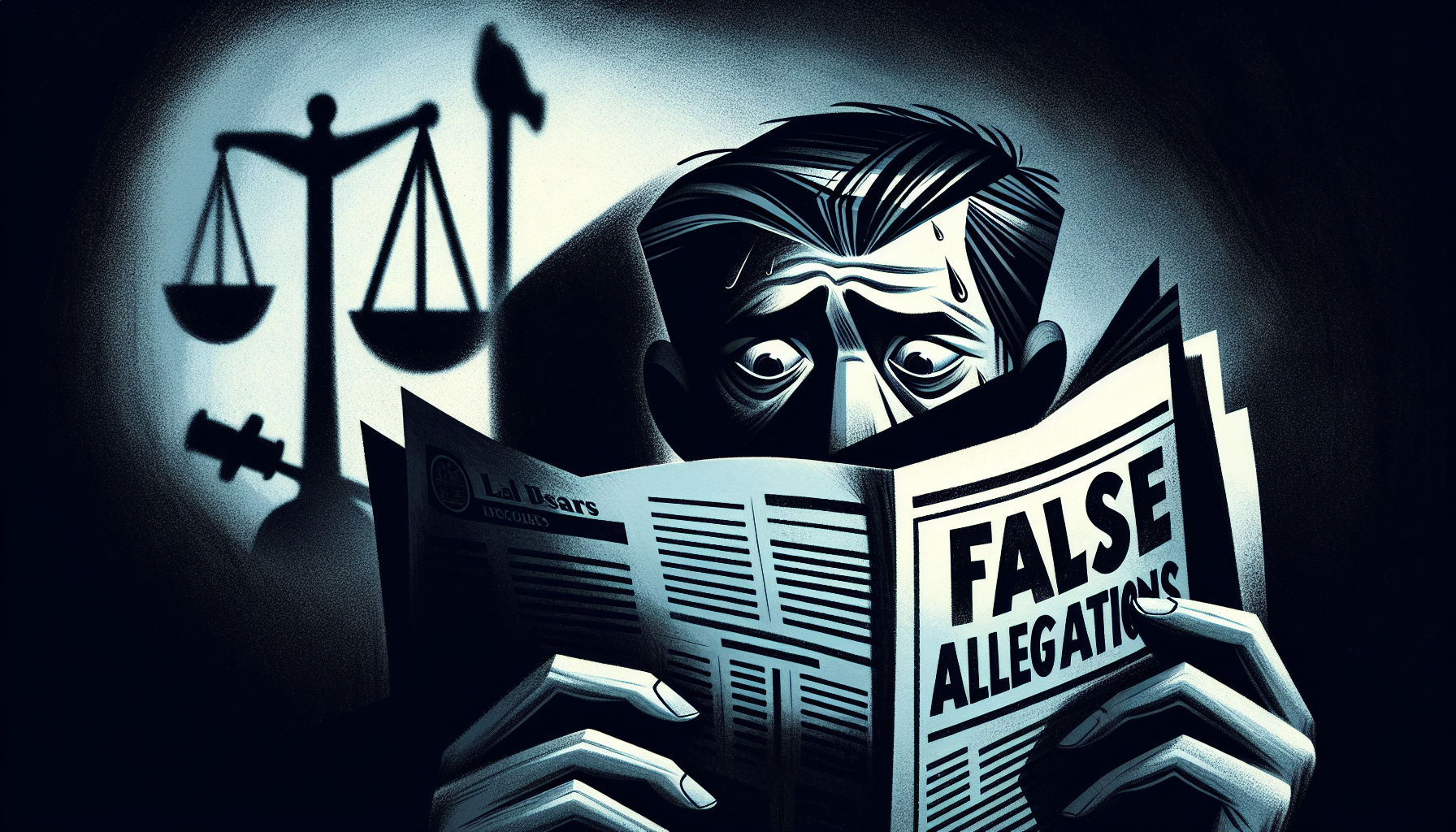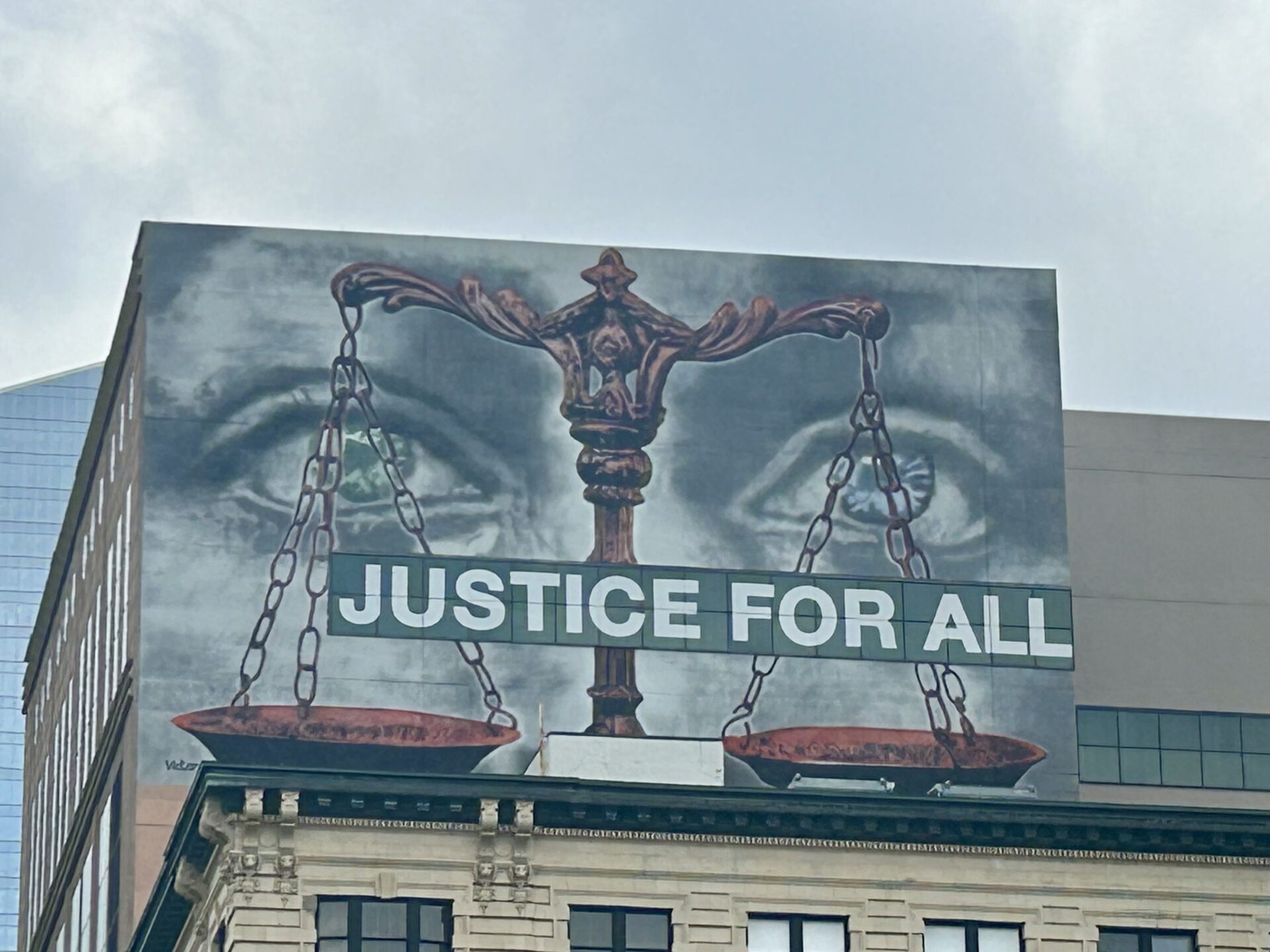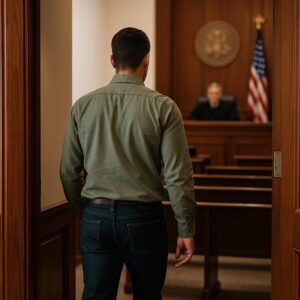Facing false accusations? Learn the crucial steps to take if your wrongly accused. This article outlines practical actions, like consulting a lawyer and gathering evidence, to safeguard your rights.
Key Takeaways
- Remaining calm and securing legal counsel are paramount when confronting false accusations to protect your rights and ensure a strong defense.
- Understanding your legal rights, including the right to remain silent and seek representation during interrogations, is essential for navigating the justice system.
- Gathering supporting evidence and challenging the credibility of the accuser are critical steps to construct a robust defense against wrongful accusations.
Stay Calm and Seek Legal Counsel

When faced with false accusations, staying calm is vital. Reacting emotionally can harm your case and give the accuser more ammunition. Keeping a level head allows for clear thinking and rational decisions.
Next, contact a criminal defense attorney who can provide essential legal guidance through the complexities of your case, including criminal and civil proceedings. They help you understand the legal process and protect your rights throughout, ensuring you avoid common pitfalls.
Avoid speaking to law enforcement or anyone else about the case without your attorney present. Your defense attorney will guide you in remaining silent to prevent self-incrimination. Prompt legal counsel can significantly affect your case’s outcome.
Understand Your Legal Rights
Remember, you are presumed innocent until proven guilty. This principle of the justice system protects individuals from unjust convictions.
A critical right is remaining silent during police questioning, preventing self-incrimination. You are not obliged to answer questions without your attorney present. Additionally, you have the right to legal representation during any law enforcement interrogation.
Understanding your legal rights includes being informed of the charges against you and confronting your accusers in court. This ensures a fair trial where you can review evidence and prepare a robust defense with your lawyer.
Gather Evidence Supporting Your Innocence

Gathering evidence to support your innocence is critical if falsely accused. Prompt action is needed to avoid losing essential information. Evidence may include text messages, emails, and any physical items that substantiate your claims.
Collaborate closely with your criminal defense attorney to ensure evidence is properly handled. This includes documenting conversations, establishing an alibi, and obtaining witness contact information. Witnesses can corroborate your version of events and support your defense.
Maintain meticulous records of interactions and take screenshots of relevant social media posts. These can clarify interactions with the accuser and strengthen your defense.
Conduct a Pre-file Investigation
Engaging a criminal defense lawyer early enables a thorough pre-file investigation, which aims to gather evidence that may persuade the prosecutor to refrain from filing charges or pursue lesser ones.
During this investigation, your defense attorney will interview witnesses and gather more evidence. These insights can influence the prosecutor’s decisions, potentially leading to charge dismissal or reduction.
Challenge the Credibility of the Accuser

Challenging the accuser’s credibility is crucial in countering false accusations. Examine their motives, history of dishonesty, or possible motivations for revenge. A thorough review of their past behavior and statements can question their honesty. Cross-examining the accuser may reveal inconsistencies, weakening their credibility.
Presenting physical evidence, such as video recordings or documented communications, can bolster your defense by disproving the accuser’s claims. Witnesses who provide alibis or corroborate your version of events are also essential for challenging the accuser’s reliability.
Develop a Strong Defense Strategy
Engaging a qualified attorney early can significantly enhance your chances of a favorable outcome. They will work with you to establish ‘reasonable doubt’ using expert witnesses and physical evidence like CCTV recordings.
The defense strategy includes placing the accuser under oath to challenge their claims. If the prosecution’s case relies on a single false accusation, your attorney can challenge the witness to weaken their position.
Explore Plea Bargain Options
Plea bargains are common in the criminal justice system, with the majority of felony convictions resulting from them. However, innocent individuals may feel coerced into accepting plea bargains to avoid the risks of trial, despite having a solid defense.
An experienced lawyer can clarify the legal implications of pleading guilty or accepting plea deals in false accusation cases. They will evaluate the strength of evidence and potential risks involved.
Seek Emotional and Psychological Support
Being falsely accused can lead to severe emotional distress, including confusion and betrayal. The experience often results in anxiety, depression, or even post-traumatic stress disorder.
Open communication with trusted friends or family can help alleviate the emotional burden. Professional counseling or therapy can also provide a space to process feelings and develop coping strategies.
Obtain Expert Legal Advice Before Making Major Decisions
Expert legal advice is necessary for making rational decisions regarding your case. An experienced criminal defense attorney provides crucial guidance on navigating legal decisions, especially for someone falsely accused. Your attorney should be familiar with criminal law and the local justice system’s nuances.
They will help you understand the legal process and the potential consequences of your choices.
Understand the Consequences of False Allegations

Individuals making false accusations may face criminal charges like perjury or filing a false report. Legal repercussions can include fines, community service, or jail time.
False accusations can severely impact a person’s life, leading to prison sentences, fines, and negative effects on career and family relationships. Additionally, those who are accused of a crime waste law enforcement resources and can result in wrongful convictions, including instances involving a false police report and malicious prosecution.
Summary
Recap of key points:
- Importance of staying calm and seeking legal counsel.
- Understanding your legal rights and gathering evidence.
- Conducting a pre-file investigation and challenging the accuser’s credibility.
- Developing a strong defense strategy and considering a defamation lawsuit.
- Exploring plea bargain options and seeking emotional support. Encouragement to seek legal counsel and support if wrongly accused.
Frequently Asked Questions
What determines the outcome in criminal court?
The outcome in criminal court is determined by the admissible evidence that can be proven. This evidence directly influences the verdict and judgement of the case.
What can help establish “reasonable doubt” in a criminal case?
To establish “reasonable doubt” in a criminal case, expert witness testimony and physical evidence, including CCTV recordings, can be crucial. These elements can effectively challenge the prosecution’s case and create uncertainty in the jury’s mind.
What role does a skilled Houston criminal defense attorney play in a case?
A skilled Houston criminal defense attorney effectively challenges the prosecution’s evidence and undermines the credibility of witnesses, ensuring that your rights are vigorously protected throughout the legal process. Their expertise is crucial in building a strong defense case.
What final decisions does a criminal defendant have in their case?
A criminal defendant ultimately decides whether to plead guilty or proceed to trial, as well as whether to accept a plea bargain. These choices represent significant moments in the legal process, emphasizing the defendant’s control over their own case.
Why might a criminal defendant need expert legal advice?
A criminal defendant requires expert legal advice to navigate the complexities of their case and make informed decisions. This guidance is crucial for understanding legal options and potential consequences.





